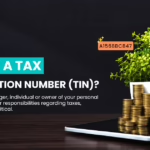With everything going digital, there’s no doubt that currencies are going digital too. That’s right- cryptocurrencies are a form of digital currency that most people use for conducting transactions. While the use of cryptocurrencies is legal in some countries, in others it may not be so. This is why there are so many regulation challenges with cryptocurrency. Is accounting for cryptocurrency typical? Let’s take a look.
Owing to the regulatory challenges, accountants frequently face challenges with accounting for cryptocurrency. Some of the situations call for dedicated accounting standard practices. Since there is no standard, accountants often have to look for proper frameworks depending on which they can conduct the transactions.
Accounting for Cryptocurrency
In order to get a brief view of accounting for cryptocurrency, it is important to understand what cryptocurrency is. A cryptocurrency refers to a digital or virtual currency that has severe duplication challenges. It operates on blockchain technology. These are independent from the central authorities which makes it impossible for the government authorities to interfere with it.
Due to the lack of regulation, the accountants will have to measure the existing accounting frameworks to identify the complexities and challenges. As an accountant, it is important to embrace the dynamic procedure for cryptocurrencies. Since there is no dedicated procedure for accounting the cryptocurrency transactions, it is advisable to follow the basics of the country to avoid any major financial or legal issues.

What Challenges Do Accountants Face with Cryptocurrency Accounting?
Accounting cryptocurrency has come a long way, with accountants depending on different strategies for accurate transactions. However, there are certain challenges that accountants face including:
Value Fluctuations
One of the most important things to note about cryptocurrencies is that their value fluctuates significantly. Compared to cash or cash equivalents, cryptocurrencies may not be that feasible because of their wide range of fluctuations.
Virtual currencies aren’t identified as legal tenders in most of the countries. Various countries have yet to come up with a standard regulation on treating these virtual and digital assets. Therefore, the huge fluctuations make it difficult to keep up with the fair value, especially in terms of the stability of the asset.
Recording Losses and Gains
As for cryptocurrency, only losses are recorded and not gains. As per the US GAAP rule, cryptocurrencies are intangible assets which may make it difficult to gain information on the profits as well as losses.
The lack of records in maintaining profits and losses can often make it difficult for accountants to keep up. This makes it extremely difficult for businesses that plan on investing in cryptocurrency. The missing records can often be misleading thereby proving to be a difficulty, especially in regards to maintaining financial statements.
Intangible Asset Reporting
Accountants have to follow financial and inventory guidelines for maintaining digital assets. There are merits to these observations, but yet they can prove to have some challenges.
In the US, under International Financial Reporting (IFR) and Generally Accepted Accounting Principles (GAAP) it is important to report the cryptocurrencies. Therefore, businesses that have invested in cryptocurrencies must report it has intangible assets that have an indefinite life.
It would be imperative to maintain a record for the same in the cryptocurrencies. Furthermore, there wouldn’t be any requirement for amortization as compared with the other indefinite-lived intangible assets. Nonetheless, the losses must be reported if the price drops below the value. Cryptocurrencies are however very volatile which often results in losses as the price falls below the cost basis.
Identifying Market Value
Cryptocurrency has a volatile nature, which means that the price would drop or increase significantly. Therefore, identifying and tracking the market value of the asset can surely be challenging in the long run and it can also be very time-consuming.
There are also discrepancies in regard to the crypto price index and individual crypto exchanges. Identifying fair market value can surely be a challenge for businesses, especially in regards to crypto assets. The accountant cryptocurrency therefore needs to identify a fair approach to calculate the prices.
Tax Implications for Cryptocurrency Transactions
The decentralized nature of cryptocurrencies makes it impossible to maintain a record of everything, especially when it comes to taxation. It is a digital asset whose value often fluctuates constantly. However, it becomes important for accountants to measure the tax regulation challenges, especially for navigating the complexities in transactions.
Crypto accountants need to be aware of the changing law of cryptocurrency in accounting, especially in respect to maintaining capital gains tax and foreign financial accounting. Staying updated with the evolving tax challenges and compliances will further ensure that accurate reporting is being done by the business regarding all cryptocurrency transactions.
Bottom Line!
With increasing challenges in the crypto space, you need accountants who can help you understand and overcome these challenges you may face while doing accounting for cryptocurrency. At MonkTaxSolutions, we aim at streamlining and solving the process with each passing step. You can opt for the crypto accounting process with us and we will take care of maintaining transactions for you. Contact us to know more!
Frequently Asked Questions FAQs: Crypto Accounting
Do accountants need to know about cryptocurrency?
Yes, accountants need to know about cryptocurrencies in order to future-proof the investments for businesses in the coming future.
Do businesses need accountants for crypto?
Yes, businesses need to have a crypto accountant if they are into crypto mining and staking. They will be able to understand the difference between taxable events and non-taxable events which can help you make better decisions in terms of investments.
What are the accounting methods of crypto?
There are different accounting methods for crypto revolving around HIFO, FIFO and LIFO. The accountants can understand the implications and make better choices accordingly.
How does GAAP identify cryptocurrency?
GAAP identifies cryptocurrencies as intangible assets.
What are the accounting issues with crypto?
Price volatility, differences in market values, and reporting as intangible assets are some of the major issues with cryptocurrency accounting.





